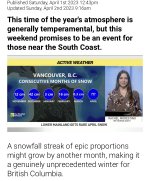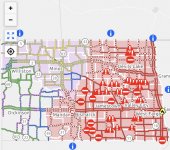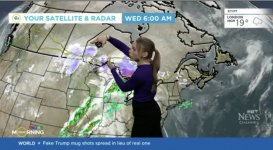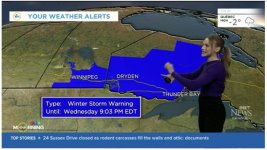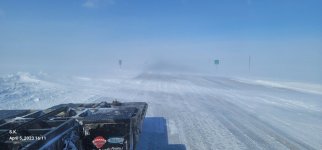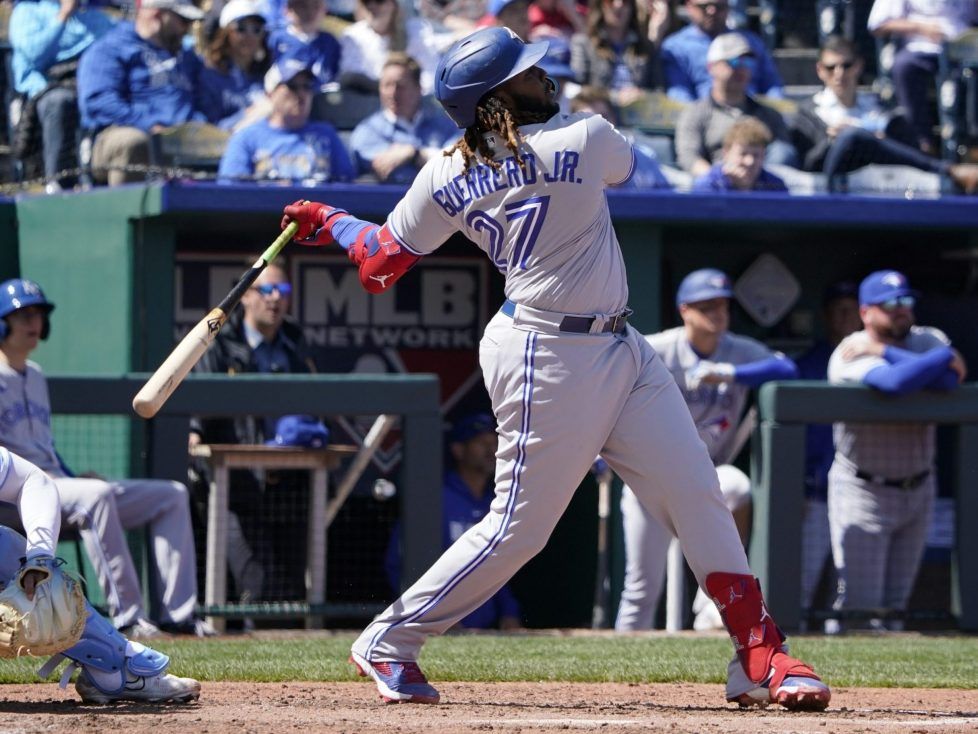Home runs are increasing thanks to climate change, study says
Each degree of warming is associated with about 95 more home runs per MLB season
Author of the article:Bloomberg News
Bloomberg News
Brandon Sapienza
Published Apr 07, 2023 • Last updated 1 day ago • 3 minute read
George Costanza made hitting home runs sound easy when he described it on Seinfeld: “Calculate the velocity, v, in relation to the trajectory, t, in which g, gravity, of course remains a constant. It’s not complicated.”
While the physics behind baseball may seem unalterable, higher temperatures reduce air density, which makes it likelier for a batted ball to fly farther. That means climate change is now influencing the game — and affecting the frequency of home runs, according to new research.
In a paper published Friday in the Bulletin of the American Meteorological Society, researchers from Dartmouth College find that rising global temperatures have led to an increase in home runs in Major League Baseball games — particularly those played in non-domed stadiums — due to reduced air density.
More than 500 MLB home runs since 2010 can be attributed to “historical warming,” the authors write. “Several hundred additional home runs per season are projected due to future warming.”
The team behind the study — led by Christopher Callahan, a doctoral candidate in geography — determined that a 1°C increase in the daily high temperature on the day a baseball game is played (in a non-domed stadium) increases the number of home runs by 1.96%. In games played in the early afternoon, the effect is larger: 2.4%.
Global warming of 2°C above preindustrial levels, the upper target set by the Paris Agreement to avoid the most cataclysmic impacts, would translate to several more home runs per year each at Chicago’s Wrigley Field, Detroit’s Comerica Park and Target Field in Minneapolis, according to the research.
“I was inspired to work on this study as a baseball fan, wondering about how climate change will affect the things I care about,” Callahan told Bloomberg Green. “I knew that this link between home runs and temperature had been proposed previously by folks like Dr. Alan Nathan, but I was curious about whether it could be seen in the large-scale data, as well as what the role of climate change might be.”
Callahan and his colleagues looked at 100,000 Major League Baseball games and 220,000 individual batted balls, and aimed to control for other potential drivers such as precipitation, wind speed and the use of advanced equipment and performance-enhancing drugs in the game.
Jana Houser, an associate professor of meteorology at Ohio State University who was not involved in the research, said that the relationship between heat, lower air density and the trajectory of a baseball is clear. “Warmer temperatures are associated with lower-density air,” she said in an email. “As such, a flying object (like a ball) will encounter lower molecular resistance in the air as a result of it having to move through fewer air molecules. This would imply that for an equal amount of force applied to the ball, it will go further in warmer air temperatures than it will in colder temperatures.”
Each degree of global warming is associated with about 95 more home runs per baseball season. Warming on a high-emissions pathway would cause players across the MLB to hit an additional 192 home runs per year by 2050 and a further 467 by 2100, the authors project.
“While changes in technology and player skill will undoubtedly shape the projections we show here, our results highlight that MLB will need to contend with climate change’s influence on baseball performance,” the authors write. “Steadily rising home runs may alter the incentives for player acquisition, offensive and defensive strategy, and public perception and engagement with the game, with consequences for the business of baseball and its on-field play.”
They propose that MLB make changes including holding all day games at night, as that would minimize the impact of daily high temperatures. Doming existing stadiums would “dampen” the effects of climate change as it pertains to home runs, they write.
“Climate change is reshaping our daily lives in pervasive ways,” Callahan said. “It’s not just heat waves and hurricanes — the ways that we play and have fun are also going to be impacted. While these impacts are often subtle at present, they will only grow stronger as long as climate change continues.”
George Costanza made hitting home runs sound easy when he described it on Seinfeld.

torontosun.com
